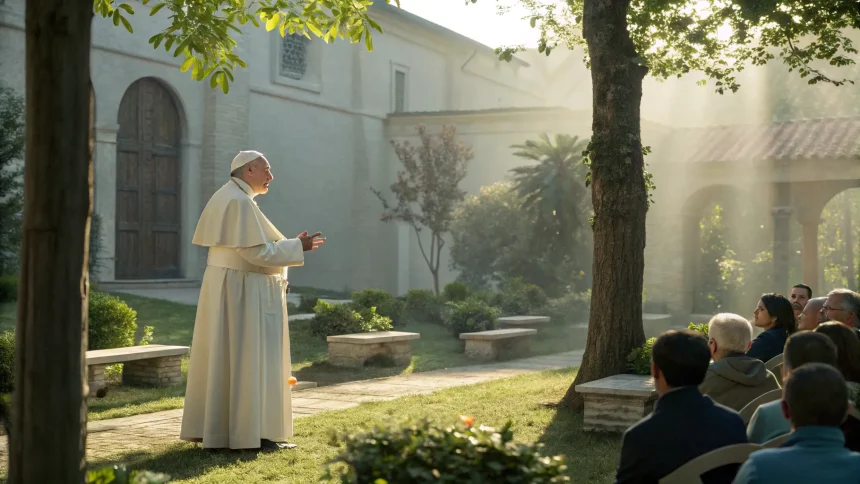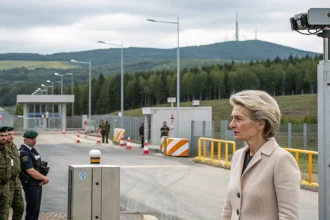Pope Leo has issued a strong condemnation of clickbait content, calling it harmful to authentic communication in the digital age. The pontiff’s remarks come as an Israel-backed organization announces plans to expand its online outreach targeting Christian communities.
The Pope’s criticism highlights growing concerns about misleading content designed primarily to generate clicks rather than provide valuable information. His comments reflect the Catholic Church’s increasing engagement with digital ethics and responsible media consumption.
Pope’s Stand Against Digital Misinformation
In his address, Pope Leo described clickbait as a form of communication that prioritizes attention-grabbing over truth. He characterized such content as “a waste” of both creators’ and readers’ time and resources.
“When we reduce communication to mere attention-seeking, we damage the fabric of human connection,” the Pope stated. His comments align with previous Vatican positions on digital ethics, which have emphasized honesty and integrity in online spaces.
Media experts note that the Pope’s stance represents a significant moment in religious leadership addressing digital culture problems. The Vatican has increasingly positioned itself as an advocate for ethical standards in technology and communication.
Israel-Backed Group Targets Christian Communities Online
Meanwhile, an organization with Israeli government backing has revealed extensive plans to engage Christian communities through digital platforms. The group aims to create targeted content and campaigns specifically designed for Christian audiences across various online channels.
The initiative represents a strategic effort to strengthen relationships between Israel and Christian communities worldwide, particularly evangelical groups that have historically supported Israeli interests.
The organization plans to deploy several approaches in its outreach:
- Creation of specialized content highlighting shared values
- Digital campaigns focused on religious tourism to Israel
- Online educational resources about biblical history and archaeology
- Social media engagement with Christian influencers and communities
Analysts suggest this move reflects Israel’s recognition of the growing importance of digital diplomacy and faith-based outreach in international relations. The initiative comes at a time when religious communities increasingly gather and form opinions in online spaces.
Digital Ethics and Religious Communities
The convergence of these two developments highlights the complex relationship between religious institutions and digital communication platforms. Faith communities worldwide are grappling with how to maintain authentic communication while effectively using digital tools.
Religious leaders across traditions have expressed concerns about misinformation and divisive content online. Many faith groups are developing guidelines for their members about responsible digital citizenship and media literacy.
“We’re seeing religious institutions take more active roles in shaping digital ethics,” noted Dr. Sarah Cohen, a researcher specializing in religion and technology. “These aren’t just theoretical concerns—they affect how communities form, how people access information about faith, and how religious messages spread.”
As digital platforms continue to evolve, religious organizations face both challenges and opportunities in how they communicate their values and engage with followers. The Pope’s criticism of clickbait and the Israel-backed outreach initiative represent different approaches to this changing landscape.
Both developments signal the growing recognition that digital spaces have become essential forums for religious discourse and community building in the 21st century. How religious institutions navigate these spaces may significantly shape both faith communities and broader digital culture in the years ahead.









